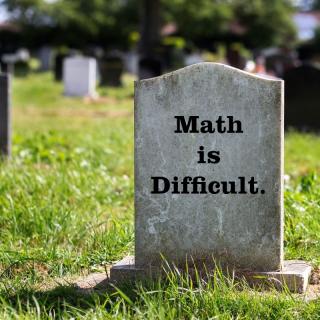In an attempt to rehash failed legislation from the 135th General Assembly, Ohio legislators – who are more focused on conflating criticism of Israel with antisemitism – are attempting to pass a pair of bills that could severely limit the ability of Ohioans to criticize the actions of the Israeli government. S.B. 87, or its House version, H.B. 90, and S.B. 53 are bills that, when applied separately or in tandem, could prove devastating to free speech criticizing the state of Israel.
S.B. 87 would incorporate the IHRA definition of antisemitism into the Ohio Revised Code (O.R.C.), a definition that is vague, not designed to be used within a legal context, and contains contemporary examples that deem criticisms of the state of Israel as antisemitic. S.B. 87 would utilize this definition of antisemitism for the purpose of investigations and proceedings by state agencies; furthermore, this bill would expand the offense of ethnic intimidation to include the offenses of riot and aggravated riot committed by reason of the race, color, religion, or national origin of another person or group of persons.
As defined in the O.R.C., a riot is a gathering of five or more people with the intent to commit or facilitate a misdemeanor, to intimidate a public figure into taking or refraining from action, to disrupt the functioning of government, or to impede the process of administration, instruction, or other lawful activities at an academic institution. One found guilty of committing a riot would be charged with a first-degree misdemeanor.
An aggravated riot, on the other hand, is a gathering of five or more people with the intent to commit or facilitate a felony or any violent offense. One found guilty of aggravated riot would be charged with a felony of the fourth or fifth degree depending on the offense.
Moreover, anyone found guilty of ethnic intimidation would be charged with “an offense of the next higher degree than the offense the commission of which is a necessary element of ethnic intimidation.” This means that someone found guilty of a riot alongside ethnic intimidation would be charged with not only a first degree misdemeanor, but also a fifth degree felony; additionally, anyone found guilty of an aggravated riot alongside ethnic intimidation would be charged with both a fourth or fifth degree felony and a fourth or third degree felony, drastically raising the stakes regarding applicable prison sentences.
What does all of this mean about how S.B. 87 would be applied in practice? That is a deceptively tough question to answer, given the vague nature of the International Holocaust Remembrance Alliance (IHRA) definition and the ability of police and courts to interpret laws in a way that is charitable to their political ideology.
One possibility is that non-violent protests on the Ohio State campus advocating for Palestinian liberation from the genocide in Gaza or the apartheid in the West Bank could be legally considered antisemitic riots, if the protest is deemed to have disrupted the process of administration, instruction, or other lawful activities on campus. In addition, if any kind of violence were to break out at such a protest, even violence as a response to police instigation, as seen in the George Floyd protests, the potential exists for police to arrest protestors for participating in an antisemitic aggravated riot. In such cases, the IHRA definition could be used to include the charge of ethnic intimidation alongside the charges of riot or aggravated riot, adding an offense of the next highest degree, drastically increasing the duration of potential prison time. Alternatively, depending on police interpretations of the law, law enforcement could potentially shut down protests before they even get started under the pretext that the criticisms of Israel are inherently antisemitic, thus escalating the protest to a riot with the intention to commit ethnic intimidation.
S.B. 53 poses a risk to first amendment rights in a different way altogether. This bill would enable “any person who suffers injury or loss to person or property,” including but not limited to “emotional distress” from acts of vandalism or riot activities to seek damages from “any person or organization who provided material support or resources with the intent that the material support or resources would be used to perpetuate the offense.” What’s more, this bill would forbid the ability of any “government official with authority over any law enforcement agency or peace officers” to “Limit or restrict the authority of the agency to have its peace officers, or certain designated peace officers of the agency, arrest or detain individuals involved in a riot or vandalism activity or take action to quell a riot or vandalism activity.”
On its face, S.B. 53 is not related to S.B. 87, but has the potential to work in tandem with S.B. 87 to enable SLAPP suits against people or organizations who participate in any demonstration that is legally deemed an act of vandalism, or riot activity. Strategic Lawsuit Against Public Participation (SLAPP) suits have the ability to severely harm a group’s ability to organize by draining their resources; a recent example would be the SLAPP suits that resulted in Greenpeace having to pay $667 million in damages to the Energy Transfer Partners, the firm behind the Dakota access pipeline. Additionally, this bill would prevent elected officials from intervening in police officers’ use of force, allowing for uninhibited police discretion to arrest or detain people who participate in such demonstrations.
In the hypothetical protests previously discussed, any protestors charged with participating in a riot or aggravated riot, or any planners or organizations involved with organizing or aiding the demonstration may be on the hook for damages, including damages for emotional distress, which are often determined by a variety of methods, which calculate the tangible economic costs of the damages and multiply them by a factor usually varying between 1.5 to 5. In addition, there would be no force that would be able to limit the actions of police officers, creating the potential for police to escalate tensions without accountability.
To summarize, S.B. 87 and S.B. 53 have the potential to work concurrently to threaten the free speech of protestors with both criminal charges and civil damages. At this moment, these bills seem targeted towards pro-Palestinian protestors, but future legislation could easily be crafted to work with one or both of these bills to limit the free speech of those who take many other stances that the Ohio government does not like.
While it is incredibly important to fight the scourge of antisemitism, especially given the neo-Nazi demonstrations in Columbus and Cincinnati over the past year, it is also critical to maintain the rights of Americans to criticize the actions and policy decisions of foreign governments. If the legal protections currently in place for Jewish people are insufficient, and we deem it essential to codify a definition of antisemitism for legal use, a potential alternative definition for antisemitism that could be incorporated into law without limiting free speech rights would be the definition put forth by the Jerusalem Declaration. This definition clearly defines and calls out legitimate antisemitism, while maintaining nuance around the discussion of Palestinian liberation. It is vital that in a time when criticizing government actions is getting more perilous by the day, we should take every precaution possible to protect our rights.



